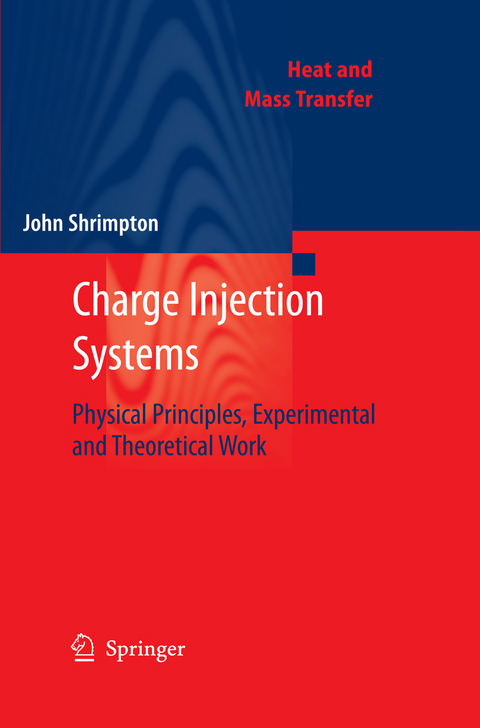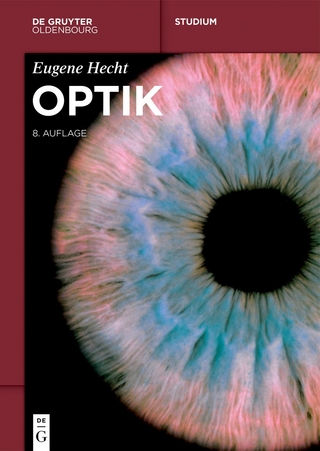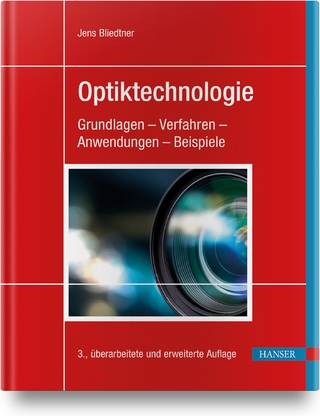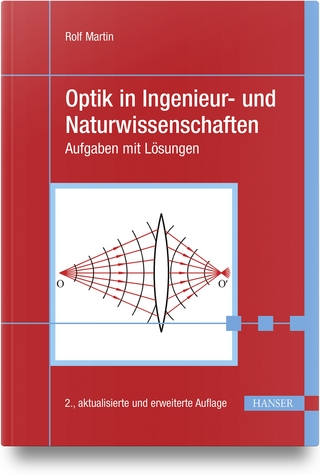
Charge Injection Systems
Physical Principles, Experimental and Theoretical Work
Seiten
2010
|
Softcover reprint of hardcover 1st ed. 2009
Springer Berlin (Verlag)
978-3-642-10136-6 (ISBN)
Springer Berlin (Verlag)
978-3-642-10136-6 (ISBN)
This reference covers the physical principles and experimental and theoretical work of Charge Injection Systems plus technology development past and present. It's a broad overview that draws from electrostatistics, fluid mechanics and engineering technology.
C Specific heat at constant pressure p D Displacement field D Diffusion coefficient d D Orifice diameter E Electric field E Electron charge F Force G Acceleration due to gravity I Current J Current flux K Conductivity k Boltzmann constant B L Atomizer geometry: length from electrode tip to orifice plane i L Atomizer geometry : length of orifice channel o P Polarization Q Flow rate/Heat flux Q Charge r Atomizer geometry : electrode tip radius p T Time T Temperature U Velocity V Voltage W Energy X Distance Nomenclature (Greek) Thermal expansion coefficient ? Permittivity ? Permutation operator ? ijk Ion mobility ? VI Nomenclature Debye length ? D ? Dynamic viscosity ? Mass density Surface tension ? T Electrical conductivity ? ? Timescale ? Vorticity Nomenclature (Subscripts) Reference state ? o Cartesian tensor notation ? ijk Volume density (? per unit volume) ? v Surface density (? per unit area) ? s Linear density (? per unit length) ? l 'critical' state ? c Bulk mean injection ? inj Nomenclature (Superscripts) Time or ensemble averaged ? Contents Contents 1 Introduction................................................................... 1 1.1 Introduction and Scope.................................................. 1 1.2 Organization.............................................................. 3 2 Electrostatics, Electrohydrodynamic Flow, Coupling and Instability.................................................................. 5 2.1 Electrostatics.............................................................. 5 2.1.1 The Coulomb Force............................................. 5 2.1.2 Permittivity...................................................... 6 2.1.3 Conductors, Insulators, Dielectrics and Polarization........ 6 2.1.4 Gauss'sLaw...................................................... 8 2.2 Mobility and Charge Transport........................................ 10 2.2.1 Introduction...................................................... 10
C Specific heat at constant pressure p D Displacement field D Diffusion coefficient d D Orifice diameter E Electric field E Electron charge F Force G Acceleration due to gravity I Current J Current flux K Conductivity k Boltzmann constant B L Atomizer geometry: length from electrode tip to orifice plane i L Atomizer geometry : length of orifice channel o P Polarization Q Flow rate/Heat flux Q Charge r Atomizer geometry : electrode tip radius p T Time T Temperature U Velocity V Voltage W Energy X Distance Nomenclature (Greek) Thermal expansion coefficient ? Permittivity ? Permutation operator ? ijk Ion mobility ? VI Nomenclature Debye length ? D ? Dynamic viscosity ? Mass density Surface tension ? T Electrical conductivity ? ? Timescale ? Vorticity Nomenclature (Subscripts) Reference state ? o Cartesian tensor notation ? ijk Volume density (? per unit volume) ? v Surface density (? per unit area) ? s Linear density (? per unit length) ? l 'critical' state ? c Bulk mean injection ? inj Nomenclature (Superscripts) Time or ensemble averaged ? Contents Contents 1 Introduction................................................................... 1 1.1 Introduction and Scope.................................................. 1 1.2 Organization.............................................................. 3 2 Electrostatics, Electrohydrodynamic Flow, Coupling and Instability.................................................................. 5 2.1 Electrostatics.............................................................. 5 2.1.1 The Coulomb Force............................................. 5 2.1.2 Permittivity...................................................... 6 2.1.3 Conductors, Insulators, Dielectrics and Polarization........ 6 2.1.4 Gauss'sLaw...................................................... 8 2.2 Mobility and Charge Transport........................................ 10 2.2.1 Introduction...................................................... 10
Electrostatics, Electrohydrodynamic Flow, Coupling and Instability.- Charge Injection into a Quiescent Dielectric Liquid.- Single Charged Drop Stability, Evaporation and Combustion.- Charge Injection Atomizers: Design and Electrical Performance.- Jet Instability and Primary Atomization.- Spray Characterization and Combustion.- Conclusions and Future Outlook.
| Erscheint lt. Verlag | 21.10.2010 |
|---|---|
| Reihe/Serie | Heat and Mass Transfer |
| Zusatzinfo | X, 196 p. |
| Verlagsort | Berlin |
| Sprache | englisch |
| Maße | 155 x 235 mm |
| Gewicht | 320 g |
| Themenwelt | Naturwissenschaften ► Physik / Astronomie ► Optik |
| Technik ► Maschinenbau | |
| Schlagworte | Charged Drop • Combustion • Dielectric Liquid • Electrostatics • fluid mechanics • Injection Atomizers • Pitch |
| ISBN-10 | 3-642-10136-4 / 3642101364 |
| ISBN-13 | 978-3-642-10136-6 / 9783642101366 |
| Zustand | Neuware |
| Informationen gemäß Produktsicherheitsverordnung (GPSR) | |
| Haben Sie eine Frage zum Produkt? |
Mehr entdecken
aus dem Bereich
aus dem Bereich
Grundlagen - Verfahren - Anwendungen - Beispiele
Buch | Hardcover (2022)
Hanser, Carl (Verlag)
49,99 €
Aufgaben mit Lösungen
Buch | Hardcover (2023)
Hanser, Carl (Verlag)
29,99 €


